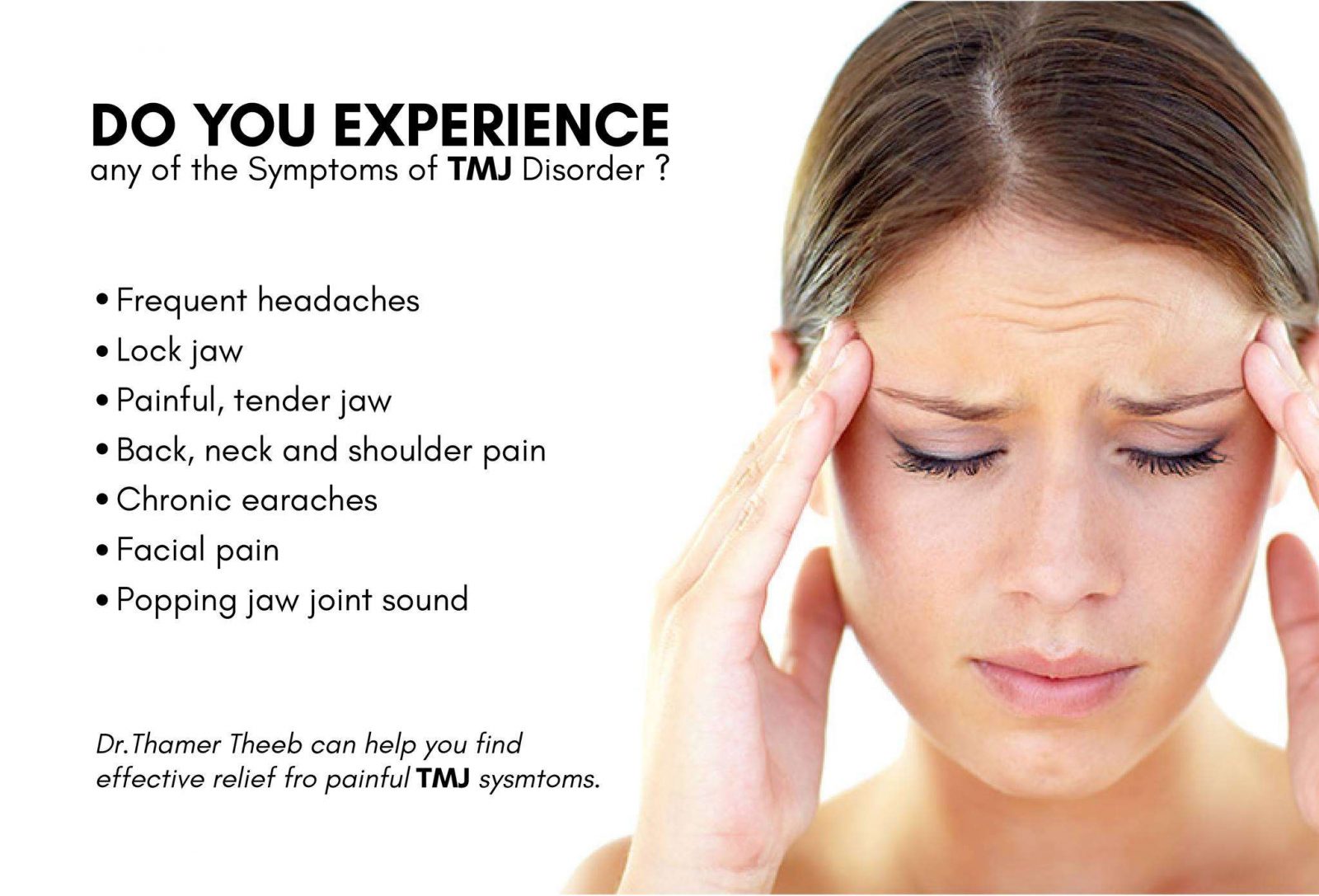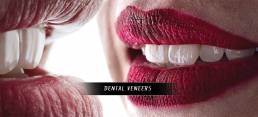JAW PROBLEM
Temporomandibular joint disorder (TMJ, TMD) involves conditions affecting the temporomandibular joint, jaw muscles and nerves on one or both sides of the head that result in jaw, face, and head and neck pain.
The pain and discomfort caused by TMJ disorders may be severe, can be either intermittent or constant, and may last for many years.
The most common symptom of TMD is pain in the chewing muscles or jaw joint pain and noises. TMD pain is usually described as a dull ache in the temporomandibular joint and surrounding areas, such as the ears, neck and shoulders. Some people may have no pain, but still experience jaw functionality difficulties.
OTHER SYMPTOMS OF TMD INCLUDE THE FOLLOWING:
1- Pain or soreness in the jaw that is more prevalent in the morning or late afternoon
2- Clicking or popping when opening or closing the mouth
3- Swelling on the side of the face
4- Sensitive teeth in the absence of dental problems
5- An earache in the absence of an infection
6- Difficulty opening and closing the mouth and/or chewing
7- Upper and lower teeth that do not align properly (malocclusion)
8- Stiffness or “locked” feeling in the jaw when talking, yawning or eating
9- Jaw pain when chewing, biting or yawning
10- Recent changes to the bite
11- Frequently waking up with headaches or experiencing frequent tension headaches
Your particular Jaw Problem TMD treatment should be determined through consultation with a dental professional highly experienced in temporomandibular joint problems. lets do that !!
HOW ARE TMJ DISORDERS TREATED
Because more studies are needed on the safety and effectiveness of most treatments for jaw joint and muscle disorders,
experts strongly recommend first using the most conservative, reversible treatments possible. Conservative treatments do not invade the tissues of the face, jaw, or joint, or involve surgery.
Reversible treatments do not cause permanent changes in the structure or position of the jaw or teeth. Even when TMJ disorders have become persistent, most patients still do not need aggressive types of treatment.
CONSERVATIVE TREATMENTS
Because the most common jaw joint and muscle problems are temporary and do not get worse, simple treatment may be all that is necessary to relieve discomfort.
SELF-CARE PRACTICES
There are steps you can take that may be helpful in easing symptoms, such as:
-eating soft foods,
-applying ice packs,
-avoiding extreme jaw movements (such as wide yawning, loud singing, and gum chewing),
-learning techniques for relaxing and reducing stress, practicing gentle jaw stretching and relaxing exercises that may help increase jaw movement.
Your health care provider or a physical therapist can recommend exercises if appropriate for your particular condition.
PAIN MEDICATIONS
For many people with TMJ disorders, short-term use of over-the-counter pain medicines or nonsteroidal anti-inflammatory drugs (NSAIDs), such as ibuprofen, may provide temporary relief from Jaw Problem discomfort. When necessary, your orthodontist can prescribe stronger pain or anti-inflammatory medications, muscle relaxants, or anti-depressants to help ease symptoms.
NIGHTGUARDS (STABILIZATION SPLINTS)
Your orthodontist may recommend an oral appliance, also called a stabilization splint or bite guard, which is a plastic guard that fits over the upper or lower teeth.
Stabilization splints are the most widely used treatments for TMJ disorders. If a splint causes or increases pain, or affects your bite, stop using it and see your health care provider.
The conservative, reversible treatments described are useful for temporary relief of pain – they are not cures for TMJ disorders Jaw Problem .
If symptoms continue over time, come back often, or worsen, tell your orthodontist. Other treatments may be needed in conjunction with a splint.
BOTOX®
Botox® (botulinum toxin type A) is a neurotoxin protein that is used to relax facial muscles. Used in small doses,
Botox injections can actually help alleviate some health problems and have been approved by the Food and Drug Administration (FDA) for certain disorders.
By using this protein to target the muscles that cause TMJ, we are able to relax the musculature and provide relief in certain circumstances.
Call us today if you would like to find out more about this modern treatment for TMJ.




